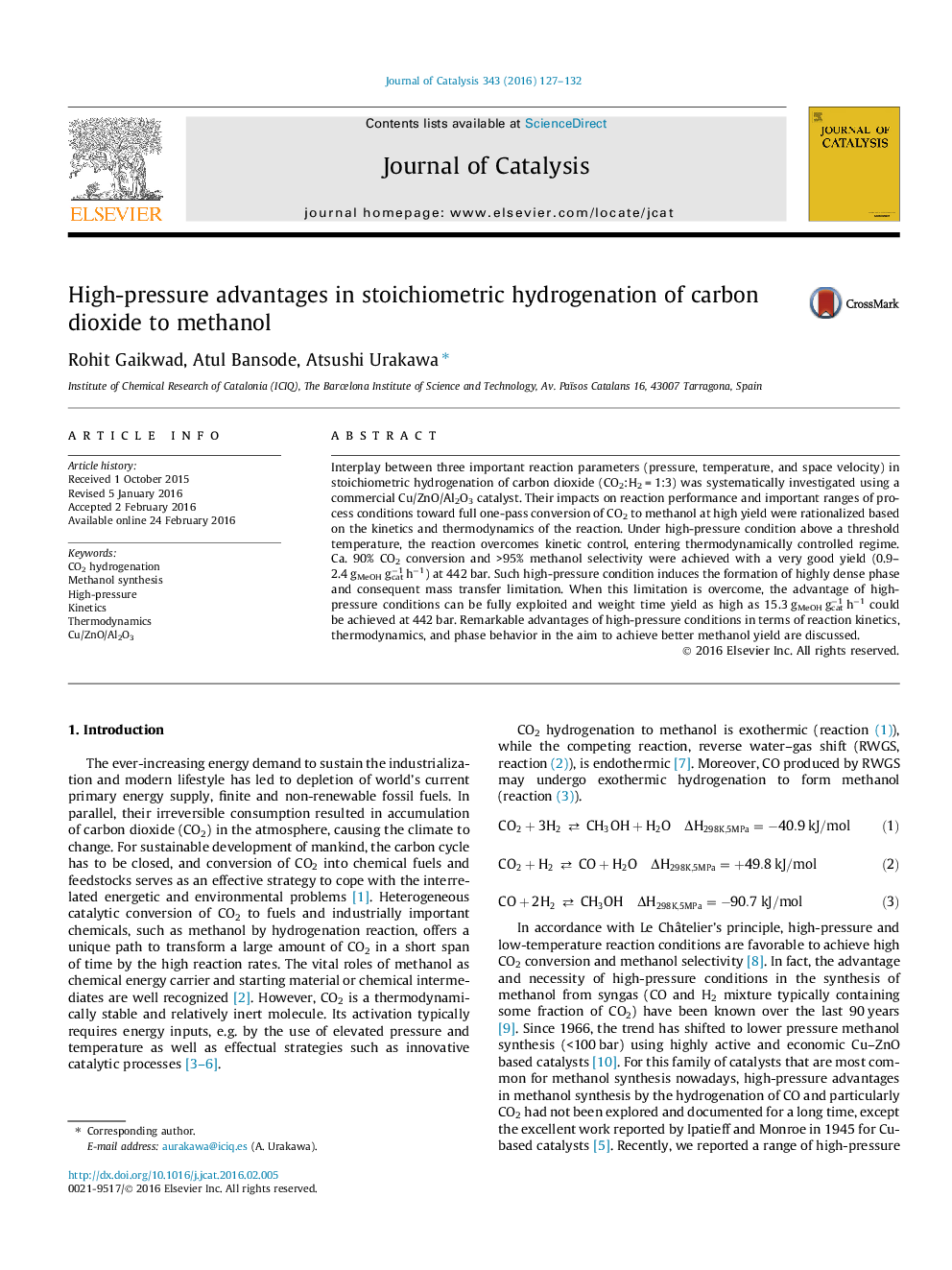| Article ID | Journal | Published Year | Pages | File Type |
|---|---|---|---|---|
| 6455964 | Journal of Catalysis | 2016 | 6 Pages |
â¢High-pressure advantages are examined for stoichiometric CO2 hydrogenation to methanol.â¢Reaction temperature and space velocity are systematically investigated under high-pressure conditions (46-442 bar).â¢High-pressure facilitates the reaction to enter thermodynamically controlled regime with excellent catalytic performance.â¢Strong interplay between kinetics and thermodynamics determines catalytic performance.â¢A remarkable methanol yield of 15.3 gMeOH gcatâ1 hâ1 can be achieved at 442 bar at high space velocity.
Interplay between three important reaction parameters (pressure, temperature, and space velocity) in stoichiometric hydrogenation of carbon dioxide (CO2:H2Â =Â 1:3) was systematically investigated using a commercial Cu/ZnO/Al2O3 catalyst. Their impacts on reaction performance and important ranges of process conditions toward full one-pass conversion of CO2 to methanol at high yield were rationalized based on the kinetics and thermodynamics of the reaction. Under high-pressure condition above a threshold temperature, the reaction overcomes kinetic control, entering thermodynamically controlled regime. Ca. 90% CO2 conversion and >95% methanol selectivity were achieved with a very good yield (0.9-2.4Â gMeOHÂ gcatâ1Â hâ1) at 442Â bar. Such high-pressure condition induces the formation of highly dense phase and consequent mass transfer limitation. When this limitation is overcome, the advantage of high-pressure conditions can be fully exploited and weight time yield as high as 15.3Â gMeOHÂ gcatâ1Â hâ1 could be achieved at 442Â bar. Remarkable advantages of high-pressure conditions in terms of reaction kinetics, thermodynamics, and phase behavior in the aim to achieve better methanol yield are discussed.
Graphical abstractDownload high-res image (85KB)Download full-size image
